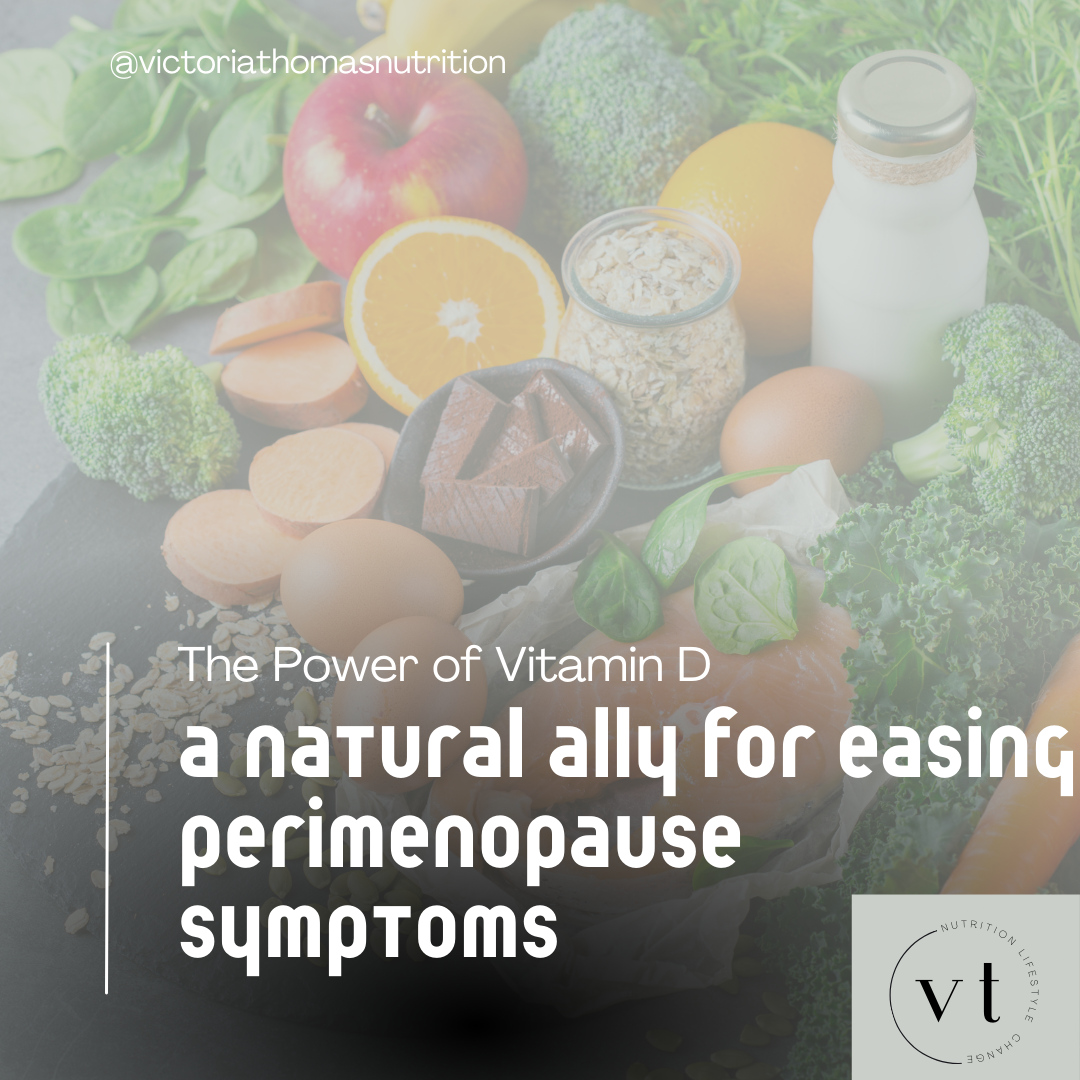The Power of Vitamin D: A Natural Ally for Easing Perimenopause Symptoms

When we think about essential vitamins and minerals, Vitamin D is right up there as one we may be familiar with; articles about Vitamin D are abundant. Most of us, however, have very little idea about its role in general - we know it’s associated with the sun and we may know it can help our bones.
But for women in their peri-menopausal / menopausal years, Vitamin D becomes so much more than just a bone-strengthening nutrient – it is in fact a multi-faceted powerhouse that can help ease this rollercoaster transition. The key is to ensure that you get enough of it to fully harness its benefits.
Vitamin D is great at lifting your overall mood but did you know that it also supports hormonal balance, heart health and promotes overall wellbeing as we age.
💡 Geek alert: a vitamin D receptor site is found in nearly all, if not all cells in the body which demonstrates just how important this lil’ole’ vitamin really is. If you’re in perimenopause and beyond, here are three surprising ways that this ‘sunshine vitamin’ can help you navigate the midlife years with more ease
1. Improves Insulin Sensitivity
As hormone levels fluctuate during perimenopause, many women find that managing their weight becomes more challenging. One of the reasons behind this is that your body’s response to insulin can change, leading to blood sugar spikes, weight gain, and potentially, an increased risk of type 2 diabetes. Vitamin D has been shown to improve how your body manages insulin helping to stabilise blood sugar levels. By keeping insulin in check, vitamin D can reduce the likelihood of unwanted weight gain and help you maintain a healthier metabolism during midlife.
2. Reduces Inflammation
Inflammation tends to increase as we age, especially when oestrogen decides to leave the party during our perimenopause years. Chronic inflammation has been linked to heart disease, autoimmune conditions, and a host of other health issues that can arise during this phase of life. Vitamin D has powerful anti-inflammatory properties; it works to calm the body’s inflammatory response, helping to protect you from these age-related health risks. By lowering inflammation, vitamin D also supports overall immune health, something that becomes increasingly important as we get older.
3. Boosts Brain Health and Cognitive Function
As mentioned in my previous blog, brain fog, forgetfulness, and difficulty concentrating are all too common during perimenopause, thanks again to those pesky fluctuating hormone levels. While vitamin D is often recognised for its mood-boosting abilities, it also plays a critical role in supporting cognitive health. Research suggests that maintaining adequate vitamin D levels can improve memory, enhance focus, and protect against cognitive decline. This makes it a valuable nutrient for keeping your brain sharp and clear, even as hormonal changes set in.
For women in their 40s and beyond, the benefits of vitamin D extend far beyond lifting your spirits. It’s a vital nutrient for managing some of the most common struggles of perimenopause—whether it’s balancing your hormones, supporting heart health, or improving brain function. The challenge, however, lies in making sure you’re getting enough.
Vitamin D can be sourced from direct sunlight exposure (hello no sunshine UK) and some food items such as dairy, mushrooms, oily fish and egg yolks. Those living in the Northern hemisphere will find it difficult to obtain sufficient levels through sun exposure and food alone, therefore a high-quality supplement may be necessary to obtain and maintain optimal levels. While the general recommendation is around 600-800 IU per day, some experts suggest women over 40 might benefit from higher doses, especially if they’re deficient. How do you know you’re deficient?
Before starting any supplement regimen, it’s always a good idea to have your vitamin D levels checked by a healthcare provider to determine the right dose for you.
Vitamin D’s role in supporting women through perimenopause is clear—it’s a natural way to help manage insulin sensitivity, reduce inflammation, and support brain health. As you navigate this stage of life, making sure you get enough of this essential nutrient can help you feel more balanced, energetic, and healthy.
Are you curious about incorporating vitamin D into your daily routine? Let's explore more ways to use nutrition and lifestyle changes to support your journey through perimenopause and beyond!
